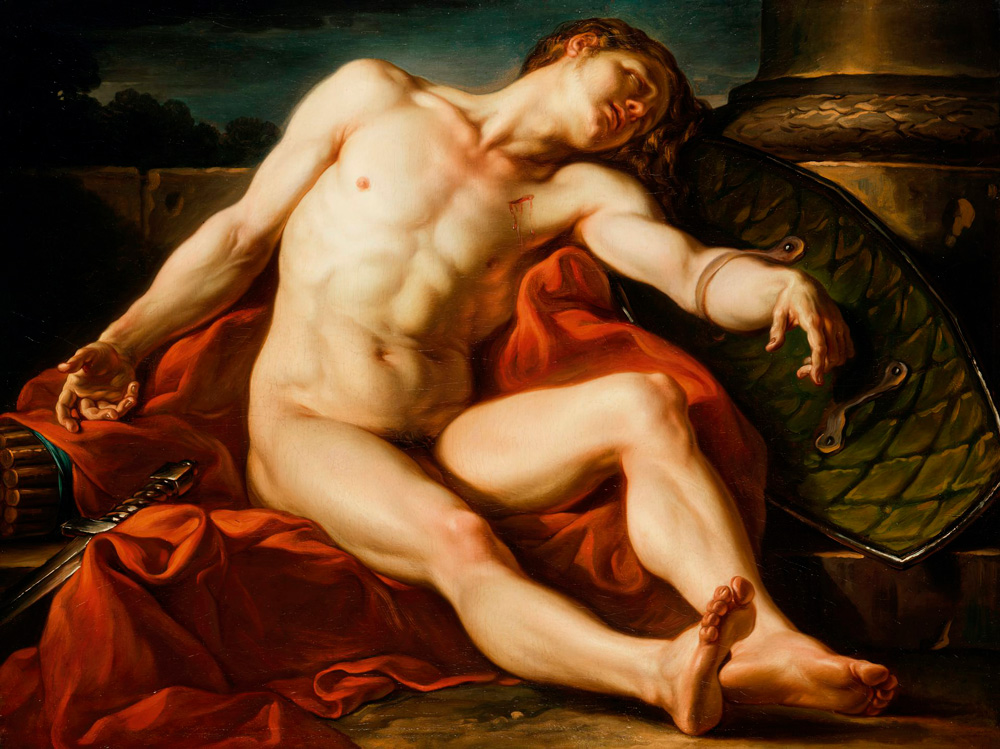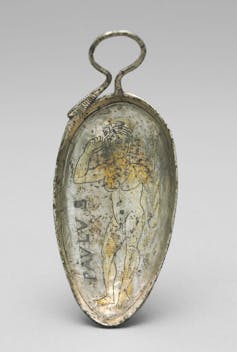
By Cavan W. Concannon
With the release of Ridley Scott’s “Gladiator II,” audiences will be plunged back into the cinematic excitement of the Roman amphitheater so vividly captured in its predecessor, “Gladiator.”
Scott’s film will undoubtedly capture the thrills of this spectacle. But as someone who studies the Roman world, I think it’s worth remembering that its cultural legacy goes beyond the cinematic pleasures of the big screen.
You might be surprised to learn that there are threads that tie together gladiators, Christian martyrs and the sense of persecution that exists among many U.S. evangelicals today.
Fan clubs and heartthrobs
Gladiatorial fights likely began as part of the funeral rites of wealthy Roman families. Over time, the fights became mass public events, regulated by the state and elites.
They included three sets of events: wild beast fights, the executions of criminals, and gladiatorial fights. The gladiators were the main event, with their forthcoming battles hyped on the walls of Roman cities. These advertisements often mentioned the names of the famous fighters, the number of gladiators fighting, and whether there would be fights to the death. Not all gladiators fought to the death: The gladiator Hilarus, for example, won 12 times but fought in 14 fights.
Gladiators were, by law, required to be slaves.
Their enslavers invested time and money in their training and upkeep. Roman games were put on at the expense of local elites, or even the emperor. Well-trained gladiators meant better shows for the sponsors and bigger profits for their owners. A gladiator who died in his first fight was not good for business. Meanwhile, a successful gladiator – meaning one who had made his enslaver a lot of money – could hope to be freed or be given an opportunity to buy his freedom.
Those who won could also expect to become beloved celebrities, which somewhat offset the dishonor of being enslaved. In Pompeii, multiple inscriptions mention the Thracian gladiator Celadus, calling him a heartthrob. Gladiatorial fan clubs were common. One group was likely responsible for a riot that broke out during a set of games in Pompeii in 59 C.E. There’s even evidence of gladiatorial cosplay. One Roman senator was said to have fought duels with a woman in a leopard costume at Ostia.
Meanwhile, the tombstones of gladiators in Roman-controlled Greece celebrated their prowess using language drawn from ancient athletics, which were sports that were only available to freeborn citizens. These gladiators gave themselves stage names evoking mythological heroes or their courage and bravery.
These stage names were not just for entertainment; they were attempts to immortalize their respectability. By casting themselves as athletes and not enslaved fighters, they presented themselves as participants in a noble, athletic tradition.
Christians embrace ancient athletics
Early Christians used descriptions of sports and athletics because they could be easily understood by Roman society.
Ancient athletic competitions shaped how people thought about beauty, the body, self-control, education and competition. For victorious gladiators, the outcast and the slave could paradoxically embody the ideals of Roman virtue.

Heritage Arts/Heritage Images via Getty Images
In the Christian New Testament, the apostle Paul famously describes himself as a runner and a boxer and even as a gladiator. The writer of the letter to the Hebrews speaks of running a race before a heavenly crowd of witnesses.
By embracing this imagery, early Christians positioned themselves as outsiders who nonetheless championed Roman ideals and culture.
Gladiator as martyr
Some early Christians followed Paul’s example and wrote themselves into the culture of ancient sports, particularly in a genre of Christian writing focused on martyrdom.
It is commonly thought that the earliest Christians were regularly and systematically persecuted by the Roman government. But the widespread persecution of ancient Christians under the Roman Empire is a myth that modern historians have debunked. Local persecutions did happen from time to time: There were a few short periods where the imperial government targeted Christians. However, for the most part, the Romans paid little attention to Christians.
So why were Christians so focused on telling stories of martyrs?
Ancient Christians wrote violent stories about martyrs because they functioned as morality plays that taught virtue and vice.
One example is the account of the “Martyrs of Lyons and Vienne,” written sometime at the end of the second century C.E. In the story, those condemned to death in the arena are described as “noble athletes” and “noble competitors.” The author characterizes Christians – who are dying not as athletes or gladiators, but as common criminals – as those who possess the elite virtues of great athletes. The reversal of expectations gives the story its force.
You can see this in the character of Blandina, an enslaved woman who is described in the account as a noble athlete and as one who has put on Christ, the “mighty and powerful athlete.” The author instructs the audience to see her as a hero, not as a slave or a criminal: through her, “Christ showed that the things that appear worthless, obscure, and despicable among men are considered worthy of great glory with God.”
In another martyr narrative, a woman named Perpetua has a dream in which she transforms into a gladiator before her martyrdom. These early Christian martyr accounts envision games in which enslaved people display noble courage and virtue; those condemned to torture, beatings and violent deaths are unfazed. Instead, they’re self-possessed athletes who strive for imperishable crowns.
Forever persecuted
The draw of stories in which Christians are “thrown to the lions” has remained powerful. Most ancient martyr accounts were written after Christianity became legal in the Roman Empire. But Christians continued to write stories about martyrs even after they became the majority of the population.
In the U.S. today, evangelical, charismatic and conservative Christians continue to tap into the martyrdom mythology. Even as they’ve become a powerful force in national politics, many influential wings of conservative U.S. Christians have come to characterize themselves as a persecuted minority. And they keep writing martyr stories.
High school football coach Joe Kennedy became an evangelical hero for fighting for the right to pray on the field at public high school football games. Kennedy had been fired for leading postgame prayers on the field, in violation of school policy. His supporters viewed him as a champion of religious freedom who was being unfairly persecuted for his beliefs. Kennedy ultimately fought all the way to the U.S. Supreme Court, which ruled in his favor.
Other conservative Christians have also returned to the arena. This time, they’re the gladiatorial fighters and not the murdered martyrs.
The popular internet meme of Marine Todd taps into this particular fantasy: The fictional Marine gets so fed up with his atheist university professor that he punches him in front of the class. Meanwhile, the gallows and crosses that accompanied the Jan. 6, 2021, attack on the U.S. Capitol juxtaposed fantasies of violence with Christian fears of persecution. While less ominous, the recent film “The Carpenter” puts Jesus ringside, telling the story of how Jesus takes on an apprentice and teaches him how to fight, MMA-style, in ancient Nazareth.
In depictions like these, Christians are no longer dying in the arena. It’s where they fight back.
![]()
Cavan W. Concannon is Professor of Religion and Classics at USC Dornsife College of Letters, Arts and Sciences.





























Laurel says
Humans.